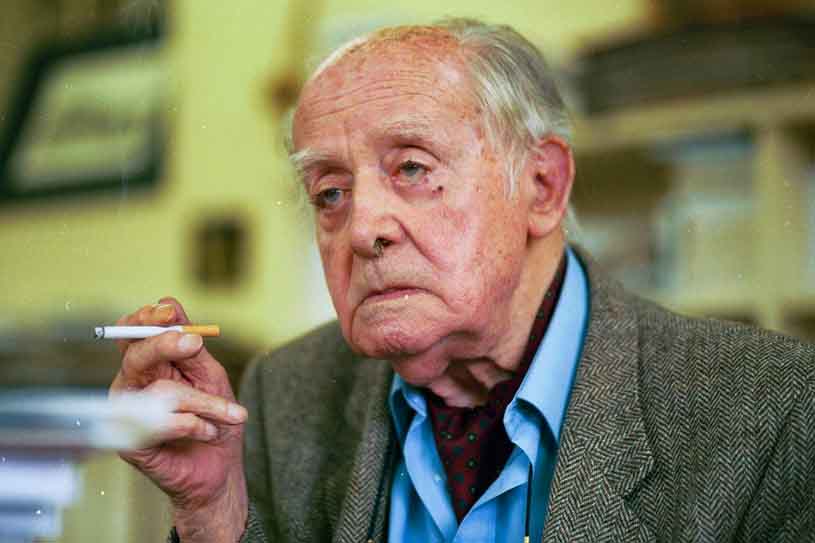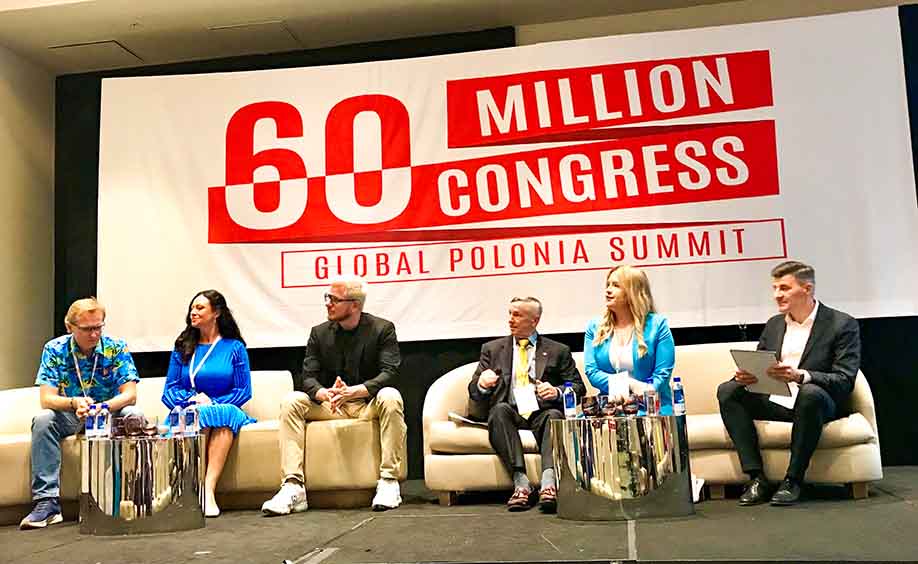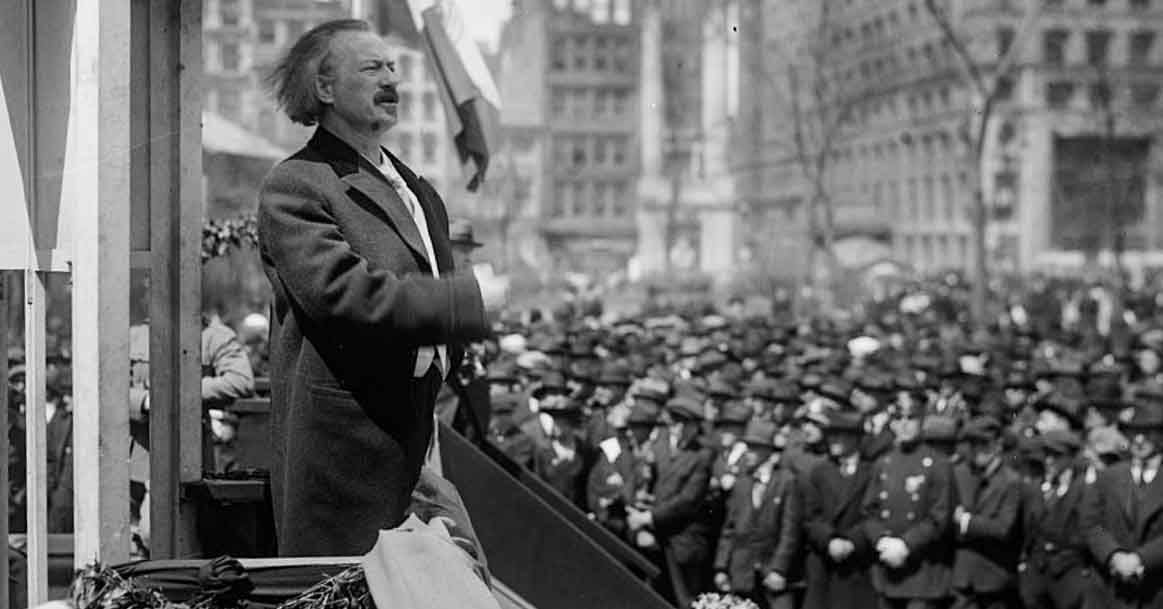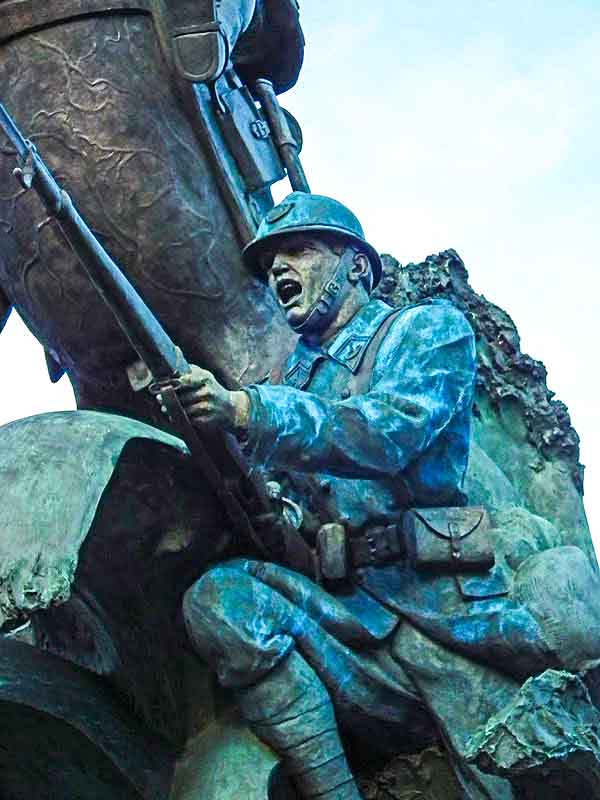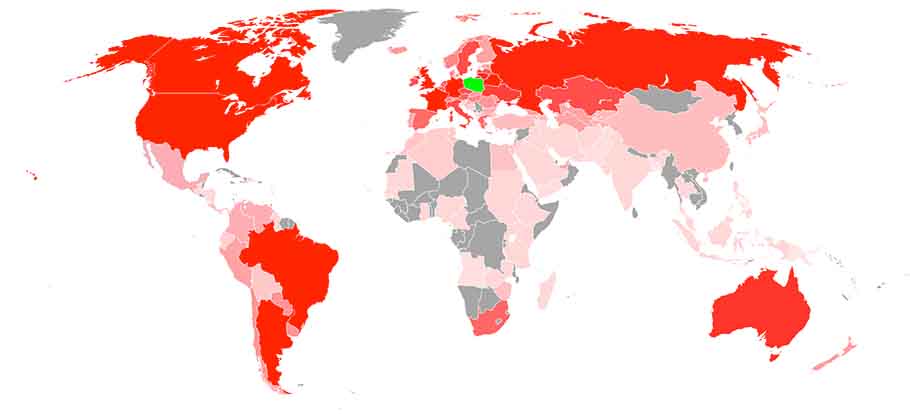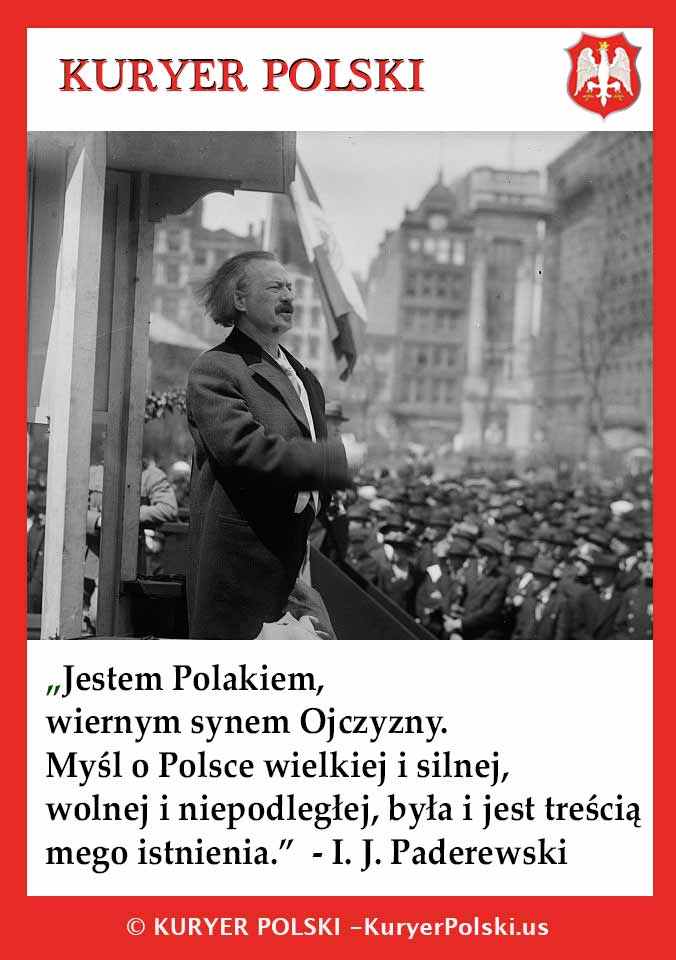CYPRIAN NORWID: God only knows how much harm and misery comes from not recognizing this part of Polish society, which is Emigration. Not recognizing, doing nothing to bring it back to the country. As if we were no longer needed by the country.
(Based on Kazimierz Braun's drama "The Return of Norwid")
There are as many as 20 million people in the world who are proud of their Polish origin. All these people have a huge potential that needs to be combined to serve Poland in the world and help create a modern image of the country, Polish culture, science, art and economy. It's time for this message to reach the Polish and Polish diaspora elites. This potential can not only help strategically support Polish interests, but also help change the image of Poland. We are, after all, one of the largest diasporas in the world!
The Polish diaspora is the fifth largest group in OECD countries. Over a quarter of Polish emigrants (28.8%) are people with higher education. However, how many Poles living abroad have a valid Polish passport? There would be more problems with the answer to this question. Specifically, are we serious about one of the largest diasporas in the world?
Foreign policy is not only about the big game, it is not only the European or global policy. It is also about this lesser policy towards Poles, Polonia, towards our compatriots. Today, millions of our compatriots are scattered all over the world. They need more contact with Poland.
That's a fragment of the address of the President of the Republic of Poland, Andrzej Duda, delivered before the National Assembly on August 6, 2015.
The role of the Polish community consists of three basic tasks: caring for the good of Poland, building pro-Polish lobbying and passing on Polishness to the next generations.
writes Jan Dziedziczak, the Secretary of State in the Chancellery of the President of the Council Ministers and government plenipotentiary for the Polish Diaspora and Poles abroad. Politicians in Warsaw made many such demands, but few of them entered the implementation phase, as did most of the ideas for state reform.
The Constitution of the Republic of Poland granted voting rights to all its citizens and it does not make the scope of citizens' political rights dependent on their place of residence.
A large group of Poles abroad, if you look closely, pay taxes in Poland and are interested in the fate of Poland. However, voting in Polish elections is different. The prevailing opinion in the country is that Polonia should not vote in Polish elections. Does anyone dare ask an American living in Germany for 30 years whether he has the right to elect the President of the USA? In order to actively include the Polish diaspora in the Polish political bloodstream, it is necessary to change the electoral law so that Polish citizens permanently residing abroad could nominate their own candidates in parliamentary elections.
The idea is expressed by a well-known Polish publicist, editor Stanisław Michalkiewicz, who says:
The proposal is that the constituency for candidates put forward by citizens permanently living abroad should be the continent. One constituency would be North America. The second - South and Central America. The third - Europe, and the fourth - Australia. Each district would have 4 seats - 16 in total. Why so many? Because at least 15 deputies must count the parliamentary club whose chairman participates in the Convention of Seniors and has an impact on the legislative work of the Sejm. In this way, the foundations for a stable Polish lobby in the countries of settlement would be laid and after 20-30 years such a lobby could gain significant influence for the benefit of itself and Poland. Because it has to be a long march and you have to be prepared for that.
The opportunity to undertake this march arises today, when a change in the electoral law is being discussed in the Polish parliament.
The Polish parliamentary elections in 2019 were exceptional. For the first time in history, two Polish parties: PiS and Konfederacja, nominated their Polish diaspora candidates to the Polish Sejm and Senate. PiS supported a non-partisan candidate for the Senate, a doctor, well-known Polish activist from Chicago, prof. Marek Rudnicki. However, in the absence of changes in the method of selecting the candidate of the Polish community, as it is, for example, guaranteed to the German minority, he lost, running in the famous Warsaw constituency No. 44 dominated by left-wing liberals. For prof. Rudnicki lacked a plan B in case he lost, and the whole matter of the elections to the Senate in 2019 is an embarrassment to the ruling elites in Warsaw.
Does the Polish state see the problem that in order to encourage the Polish diaspora to support the Polish cause abroad, minimal intellectual effort, political will and building a system of activating the Polish diaspora in the political life of the country of residence are needed? Has anyone come up with an idea to create an information system for Poles living in a given consular district? To check the validity of passports because the elections to the Polish parliament are approaching or to encourage those who feel Polish to obtain a Pole's Card? It would be worth seriously developing an e-mail and telephone system to communicate with Polish citizens abroad.
Today, in the face of the changing balance of power in the world, the most important thing is to leave the 'old mental models' in the composition of expired products and create a modern vision for the Polish diaspora in the world. A vision that would strongly and actively support the foreign policy of the Polish state. New goals should be set and the scale of their importance outlined. Without bilingual media, the American Polonia, i.e. 9 million people who do not speak Polish, have no chance of maintaining their identity as an important ethnic group in the USA. They draw their knowledge about Poland from the American media.
In order to guarantee Polish interests, to reform the Polish army, for political, military and economic cooperation, to favor the idea of the Intermarium and the strategic presence of the United States on NATO's eastern flank, it is necessary to conduct an active and assertive state policy, Polish diplomacy, and coordinated influence of the Polish diaspora on each administration in Washington, Berlin, Paris, and Ottawa.
There are many reasons for the positive message about Poland and its constantly developing economy, Polish achievements and the role of Poland in Central and Eastern Europe to reach a global audience. Polish consulates in the United States encourage you to support the efforts of Arkadiusz Mularczyk, MP, who held a series of meetings with senators and congressmen in the US Congress. The purpose of these meetings was to obtain support in two aspects of aid to Ukraine and US assistance to support Polish claims for German reparations to Poland.
Yes, these talks and meetings of the minister in the US were extremely important! However, in order to achieve the desired effect, there must be a cross-party, coherent pressure of the Polish community on the US Congress. American parliamentarians must feel the constant pressure of their voters. Their local and Washington offices must receive letters, e-mails and phone calls supporting the Polish position; at the same time, there must be publications, documentaries and feature films that will explain and specify this position. We wholeheartedly support reparations from Germany, although their legal basis seems a bit 'shaky' in the light of the Potsdam Agreements.
Kuryer Polski from Milwaukee has been publishing articles in Polish and English on this subject for several months now. However, in order to reach the American elite, an effective strategy is needed to help the Polish narrative in the United States.
First of all, we need a Hollywood film about Captain Pilecki, which would bring into focus the problem of World War II in occupied Poland. The key to making this film is the Polish actor Marek Probosz, who lives in California and has been promoting Pilecki in the United States for many years, without the support of large Polish foundations. Although, undoubtedly, the figure and heroism of Captain Pilecki cannot be overestimated, one should also remember to promote such films as "Katyń" by Andrzej Wajda, or "Interrogation" by Ryszard Bugajski (can these films appear in the "Netflix" offering?).
One may ask — what is all this for? Well, Americans must understand what Poland is today and what experiences Polish society had and how its love of freedom has survived the two most destructive totalitarian systems: fascism and communism.
Every year, the Polish diaspora from the United States sends about USD 900 million to Poland (World Bank data, developed by the Migration Policy Institute), which is comparable to the funds invested by foreign companies in Poland. From the very beginning of investing American capital in Poland, it was clear that businessmen of Polish origin from the USA and Canada played an important role in this process. However, there is a lack of reliable research on this topic.
It's time for this message to reach the Polish and Polish diaspora elites. The strength of the Polish community may not only strategically support Polish interests, but also help change the image of Poland. The 3% of the US population cannot be underestimated on the American political scene. And when someone tells you that you have no moral right to speak on Polish matters, answer as Jan Ignacy Paderewski did on April 30, 1915 in Chicago:
And when looking at your tired faces, at your hands thickened from hard work, which has brought abundance to many, even enemies, when, looking at your modest robes, the rich and proud, happy and envious, may ask you about your rights to the title, just answer that you are the Piast, Chrobry, Łokietek's offspring, that you are Zawisza, Warnenczyk heirs, that you are Czarneckis, sons of the Sobieskis, that you are Dąbrowski, Pulaski, Kościuszko children. Answer boldly: that you are Poles.
Translation from Polish by Andrew Woźniewicz.







